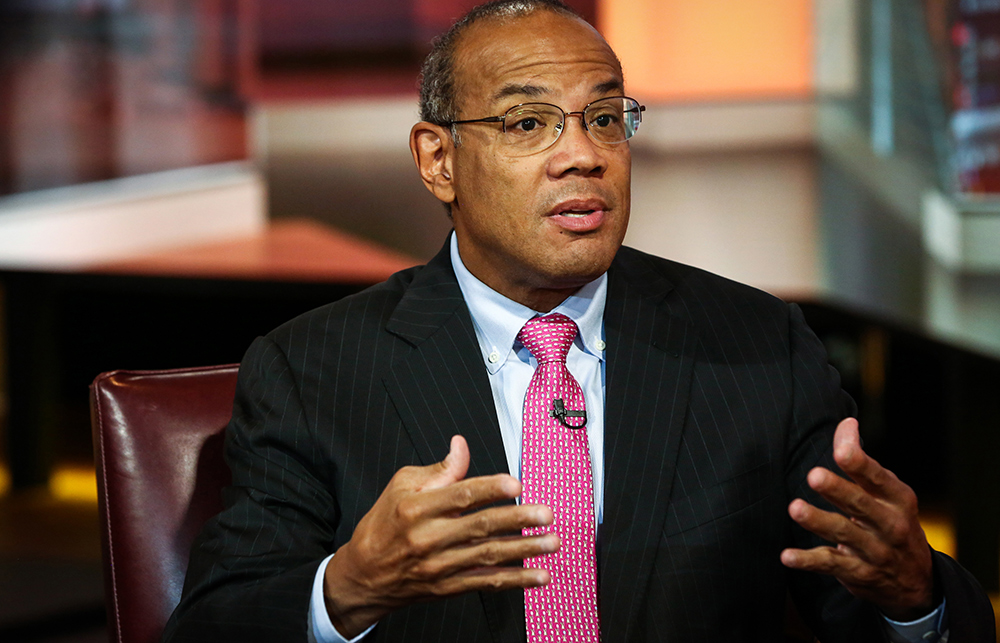麦当劳真的够“包容”吗?

我自2003年以来便一直是麦当劳董事会的董事。我认为,麦当劳所拥有的公平商业模式在美国来说无人能居其右。
一群非洲裔前特许经营者起诉麦当劳,称他们遭到了该公司的不公平对待,并引发了世人对麦当劳多元化和包容性的质疑。我自身的经历以及公司长期以来对黑人群体的支持则讲述了一个不同的事实。
这些年来,我亲眼见证了各大公司在推动经济公正性方面存在的巨大潜力。全球约93%的麦当劳餐厅都由独立的当地企业主持有和运营。在美国,近30%的麦当劳特许经营者来自于多元化的种族背景。其中,黑人特许经营者在其麦当劳店面中的平均权益约为750万美元。总的来说,黑人特许经营者在美国麦当劳店面总计拥有约14亿美元的权益。
麦当劳去年在黑人供应商的采购额达到了近10亿美元,其中,该公司在美国近25%的食品和纸品采购额都让渡给了多元化供应商。此外,在排名前20的黑人所有美国企业中(根据《黑人企业》杂志百强榜单),有5家都是麦当劳的供应商。
在麦当劳的12名董事中,有半数都是女性或具有多元种族背景,其中包括董事长。对于所有董事来说,继续为美国和全球所有民众打造创业、经济增长和移动性机会是麦当劳工作的重中之重。
麦当劳在很久之前便意识到并接纳了多元化的重要性,而那时其他公司的种族平等计划才刚刚起步。在上个世纪70年代初,麦当劳的所有者雷•克罗克启用了副总裁、公司的首位黑人董事罗伯特•比弗斯,来进一步实现公司特许经营者的多元化。这是克罗克和麦当劳的前董事长弗雷德•特纳实施的更宏伟计划的一部分,目的是为了发掘那些有商业头脑、志在成功的企业家。正是因为摒弃了种族或教条——在很多情况下也不会考虑非常有限的资本——这些企业家才有机会购买麦当劳的特许经营权,并赚取回报。
麦当劳芝加哥总部的墙上挂着赫曼•贝蒂的肖像,她是麦当劳特许经营权的首名黑人所有者/运营者,于1968年开设了其首家餐馆。1972年,在贝蒂的主导下,全美黑人麦当劳运营商协会(National Black McDonald’s Operators Association)诞生了,共有12名创始成员,其中6名都是芝加哥黑人特许经营者,包括雷斯利•哈尔斯顿父亲的雷斯特•哈尔斯顿。
黑人特许经营者的机会并不仅限于贫困社区。黑人特许经营者在芝加哥知名海军码头以及我们首要的展览场馆迈考密展览中心(McCormick Place)亦开设了麦当劳。已故的民权领袖斯瑞罗•麦克斯文曾经是一名黑人特许经营者,其道富银行(State Street)的店面曾几何时是全美销售额最高的店面。斯瑞罗曾经担任马丁•路德•金的葬礼护柩者。
我与他人共同创建了黑人企业董事会议,为的是鼓励企业多元化和包容性,并促进非洲裔美国董事在其相应的董事会中推广民权议程。正如公司的使命宣言所说的那样:“尽管一些公司董事会吸纳了非洲裔美国人以及来源于少数民族的董事,但这些公司本身依然没有在其各个层面充分践行多元化和包容性承诺。”
我坚信,麦当劳正在帮助解决这一挑战。如果我不这么做,我也无法担任公司的董事。说到在业务中更加深入地贯彻经济公正理念的做法,没有迹象表明麦当劳的领导层会有所松懈。
我与麦当劳的首席执行官克里斯•坎普辛斯基有着相同的看法——公司特许经营者的级别应该更充分地反映美国和全球的多元化构成。这一可追溯至公司成立初期的进程如今是公司的重中之重。
当然,这其中还有很多工作要做。作为一名非洲裔美国人,我充分意识到还有很长的路要走,但麦当劳一如既往地走在这一方面的前列。我坚信,麦当劳当前领导层对推动这一进程的承诺将确保公司继续成为其他企业效仿的榜样。(财富中文网)
小约翰•罗杰斯是Ariel Investments创始人、董事长、联席首席执行官兼首席投资官。自2003年以来,他一直担任麦当劳董事会董事。
译者:冯丰
审校:夏林
我自2003年以来便一直是麦当劳董事会的董事。我认为,麦当劳所拥有的公平商业模式在美国来说无人能居其右。
一群非洲裔前特许经营者起诉麦当劳,称他们遭到了该公司的不公平对待,并引发了世人对麦当劳多元化和包容性的质疑。我自身的经历以及公司长期以来对黑人群体的支持则讲述了一个不同的事实。
这些年来,我亲眼见证了各大公司在推动经济公正性方面存在的巨大潜力。全球约93%的麦当劳餐厅都由独立的当地企业主持有和运营。在美国,近30%的麦当劳特许经营者来自于多元化的种族背景。其中,黑人特许经营者在其麦当劳店面中的平均权益约为750万美元。总的来说,黑人特许经营者在美国麦当劳店面总计拥有约14亿美元的权益。
麦当劳去年在黑人供应商的采购额达到了近10亿美元,其中,该公司在美国近25%的食品和纸品采购额都让渡给了多元化供应商。此外,在排名前20的黑人所有美国企业中(根据《黑人企业》杂志百强榜单),有5家都是麦当劳的供应商。
在麦当劳的12名董事中,有半数都是女性或具有多元种族背景,其中包括董事长。对于所有董事来说,继续为美国和全球所有民众打造创业、经济增长和移动性机会是麦当劳工作的重中之重。
麦当劳在很久之前便意识到并接纳了多元化的重要性,而那时其他公司的种族平等计划才刚刚起步。在上个世纪70年代初,麦当劳的所有者雷•克罗克启用了副总裁、公司的首位黑人董事罗伯特•比弗斯,来进一步实现公司特许经营者的多元化。这是克罗克和麦当劳的前董事长弗雷德•特纳实施的更宏伟计划的一部分,目的是为了发掘那些有商业头脑、志在成功的企业家。正是因为摒弃了种族或教条——在很多情况下也不会考虑非常有限的资本——这些企业家才有机会购买麦当劳的特许经营权,并赚取回报。
麦当劳芝加哥总部的墙上挂着赫曼•贝蒂的肖像,她是麦当劳特许经营权的首名黑人所有者/运营者,于1968年开设了其首家餐馆。1972年,在贝蒂的主导下,全美黑人麦当劳运营商协会(National Black McDonald’s Operators Association)诞生了,共有12名创始成员,其中6名都是芝加哥黑人特许经营者,包括雷斯利•哈尔斯顿父亲的雷斯特•哈尔斯顿。
黑人特许经营者的机会并不仅限于贫困社区。黑人特许经营者在芝加哥知名海军码头以及我们首要的展览场馆迈考密展览中心(McCormick Place)亦开设了麦当劳。已故的民权领袖斯瑞罗•麦克斯文曾经是一名黑人特许经营者,其道富银行(State Street)的店面曾几何时是全美销售额最高的店面。斯瑞罗曾经担任马丁•路德•金的葬礼护柩者。
我与他人共同创建了黑人企业董事会议,为的是鼓励企业多元化和包容性,并促进非洲裔美国董事在其相应的董事会中推广民权议程。正如公司的使命宣言所说的那样:“尽管一些公司董事会吸纳了非洲裔美国人以及来源于少数民族的董事,但这些公司本身依然没有在其各个层面充分践行多元化和包容性承诺。”
我坚信,麦当劳正在帮助解决这一挑战。如果我不这么做,我也无法担任公司的董事。说到在业务中更加深入地贯彻经济公正理念的做法,没有迹象表明麦当劳的领导层会有所松懈。
我与麦当劳的首席执行官克里斯•坎普辛斯基有着相同的看法——公司特许经营者的级别应该更充分地反映美国和全球的多元化构成。这一可追溯至公司成立初期的进程如今是公司的重中之重。
当然,这其中还有很多工作要做。作为一名非洲裔美国人,我充分意识到还有很长的路要走,但麦当劳一如既往地走在这一方面的前列。我坚信,麦当劳当前领导层对推动这一进程的承诺将确保公司继续成为其他企业效仿的榜样。(财富中文网)
小约翰•罗杰斯是Ariel Investments创始人、董事长、联席首席执行官兼首席投资官。自2003年以来,他一直担任麦当劳董事会董事。
译者:冯丰
审校:夏林
I have been a member of the McDonald’s board of directors since 2003. And I believe that there is no finer example of an equitable business model in America than the one McDonald’s has.
A recent lawsuit by a group of Black former franchisees has called into question the company’s commitment to diversity and inclusion by claiming that McDonald’s treated those franchisees unfairly. My own experience and the company’s long history of supporting the Black community reveal a different reality.
Over the years, I have seen firsthand the immense potential of corporations to nurture economic justice. Approximately 93% of McDonald'srestaurants worldwide are owned and operated by independent local business owners. In the U.S., nearly 30% of McDonald’s franchisees come from ethnically diverse backgrounds. Of these, Black franchisees have, on average, equity in their McDonald’s business of approximately $7.5 million. Collectively, all Black McDonald’s U.S. franchisees have approximately $1.4 billion of equity in their McDonald’s businesses.
McDonald’s last year spent nearly $1 billion with Black suppliers, including devoting nearly a quarter of its U.S. food and paper supply budget to diverse suppliers. Moreover, five of the top 20 Black-owned businesses in America as identified in Black Enterprise magazine’s Top 100 list are McDonald’s suppliers.
Of the 12 directors at McDonald’s, half are women or racially diverse, including the chairman of the board. It is a top priority of all board members that McDonald’s continues fostering opportunities for entrepreneurship, economic growth, and mobility for absolutely anybody in the U.S. and around the world.
At a time when other companies are only just initiating racial equality programs, McDonald’s has long understood and embraced the importance of diversity. In the early 1970s, McDonald’s owner Ray Kroc tapped Robert Beavers, a vice president and the company’s first Black director, to further diversify the company’s franchisees. This was part of a larger effort by Kroc and former McDonald’s chairman Fred Turner to identify entrepreneurs who were commercially minded and driven to succeed. Regardless of race or creed—in many cases, regardless of highly limited capital—these entrepreneurs were able to buy a McDonald’s franchise and reap the rewards.
On the walls of the McDonald’s headquarters in Chicago hangs the portrait of Herman Petty, the first Black owner/operator of a McDonald’s franchise, who opened his first restaurant in 1968. In 1972, Petty presided over the launch of the National Black McDonald’s Operators Association. Of the founding members, six of the 12 were Black franchisees in Chicago, including Lester Hairston, 5th Ward Alderman Leslie Hairston’s father.
Opportunities for Black franchisees have not been limited to underprivileged neighborhoods. It was a Black franchisee who opened a McDonald’s at Chicago’s famous Navy Pier, as well as at our premier convention site McCormick Place. The late Cirillo McSween, a civil rights leader who served as a pallbearer at Martin Luther King Jr.’s funeral, was a Black franchisee whose State Street franchise was at one time the number one restaurant in the country by sales.
I cofounded the Black Corporate Directors Conference in order to encourage corporate diversity and inclusion and to encourage African American directors to promote the civil rights agenda within their respective boardrooms. As our mission statement notes, “even though some boards have African American and minority directors, the companies themselves are still not living up to their diversity and inclusion commitments across every level of the company.”
I firmly believe that McDonald’s is helping to solve that challenge. I would not serve on its board of directors if I didn’t. McDonald’s leadership is showing no signs of taking its foot off the gas to embed economic justice even more deeply within the business.
I share McDonald’s CEO Chris Kempczinski’s belief that the company’s franchisee ranks should more closely reflect the diverse composition of America and the world. That process—dating back to the earliest days of the company—stands today as a very top priority.
Of course, there is more to do. As a Black American, I am all too aware there is always more to do. But McDonald’s, as it always has, is leading the charge. And I am confident that the current leadership’s commitment to driving progress will ensure McDonald’s continues to set the example for other companies to follow.
John W. Rogers Jr. is the founder, chairman of the board, and co-chief executive officer and chief investment officer of Ariel Investments. He has been a member of the McDonald’s board of directors since 2003.













